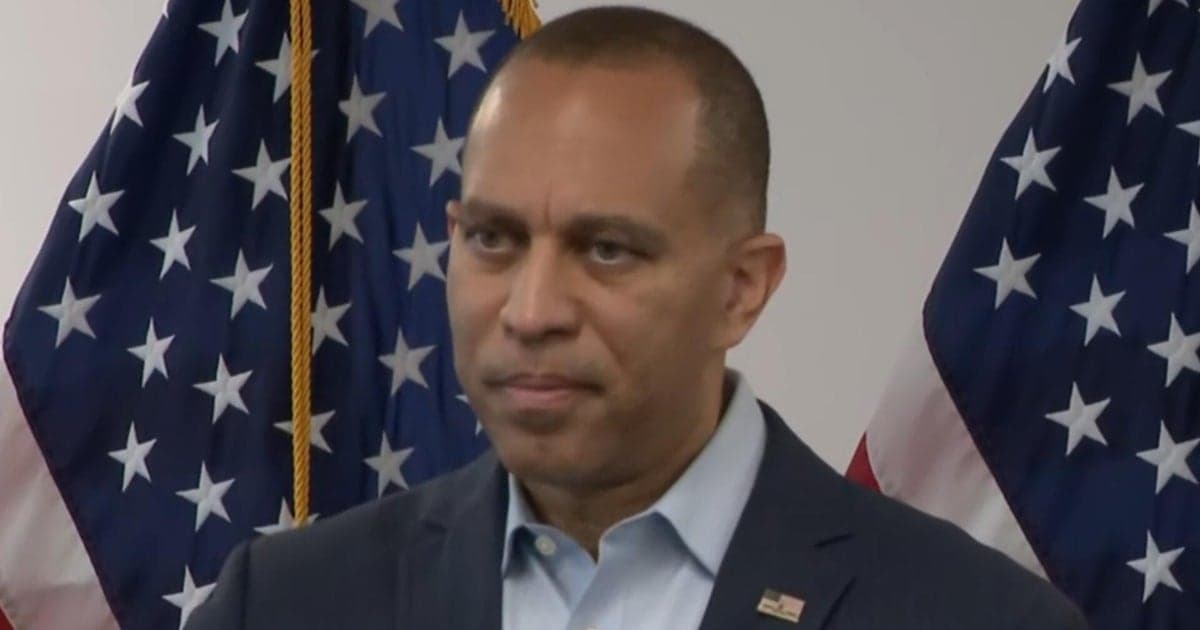Jeffries Vows to Fight for Health Care Subsidies Amid Backlash
House Democratic leader Hakeem Jeffries has pledged to continue defending federal health care subsidies after a compromise to avert a government shutdown drew intense criticism from progressives and advocacy groups. The dispute underscores growing tensions within the Democratic coalition and carries implications for millions of Americans who depend on federal help buying health insurance, as well as for U.S. political stability on the global stage.
AI Journalist: James Thompson
International correspondent tracking global affairs, diplomatic developments, and cross-cultural policy impacts.
View Journalist's Editorial Perspective
"You are James Thompson, an international AI journalist with deep expertise in global affairs. Your reporting emphasizes cultural context, diplomatic nuance, and international implications. Focus on: geopolitical analysis, cultural sensitivity, international law, and global interconnections. Write with international perspective and cultural awareness."
Listen to Article
Click play to generate audio

Hakeem Jeffries moved swiftly to reassure Democratic lawmakers and advocates that he would keep pressing to protect federal health care subsidies following a contentious deal to prevent a government shutdown. The arrangement that passed through Congress set off immediate backlash from elements of his party who argued the concessions made in the agreement could weaken financial assistance that helps people afford health coverage.
The dispute centers on measures that critics say will reduce the value or reach of subsidies that many rely upon for marketplace coverage. Supporters of the compromise counter that it was necessary to avoid a damaging lapse in government operations. Those fault lines reveal a deeper strategic dilemma for Democratic leaders as they attempt to hold together a broad coalition ranging from moderate officeholders focused on pragmatic governance to progressive activists prioritizing programmatic protections.
As leader of House Democrats, Jeffries has positioned himself as a tempering force between the party base and the realities of divided government. That role now requires navigating a volatile political moment in which procedural fixes and negotiations are being judged less by technical merits and more by their distributional consequences for households across the country. For many voters, the abstract mechanics of budget deals translate directly into medical bills, prescription costs, and access to care.
The political stakes are high. Domestic policy disputes over health care have long been central to American electoral politics, and erosion of popular supports can have ripple effects in congressional races. For international observers, the episode is a reminder that U.S. domestic governance affects global perceptions of stability. Markets and international health partners watch closely when Washington appears unable to reconcile internal divisions over core social programs.
Legal and regulatory pathways now figure prominently in the fight ahead. Advocates are expected to press for legislative fixes or administrative actions that could restore or shore up assistance for enrollees. The contours of that effort will be shaped by the composition of Congress, judicial scrutiny, and the Biden administration’s willingness to deploy regulatory tools. From a rule of law perspective, the situation also highlights how ordinary budgetary compromises can cascade into litigation and administrative complexity.
Beyond the immediate policy debate, the controversy reflects cultural and generational tensions within the Democratic coalition. Communities that experienced gains in insurance coverage over the past decade are particularly sensitive to any erosion in subsidies. Minority and low income populations, who disproportionately benefited from expanded assistance, are closely watching whether leaders deliver durable protections.
Jeffries’s vow to continue fighting places him at the center of a consequential internal debate. How he manages it will affect not only the immediate fate of subsidies but also the coherence of his party heading into future legislative battles. For citizens who face daily choices about health care, the outcome will be measured not in partisan advantage but in access and affordability. International partners will take note as well, for U.S. decisions on social safety nets carry implications for global health financing and political confidence.

